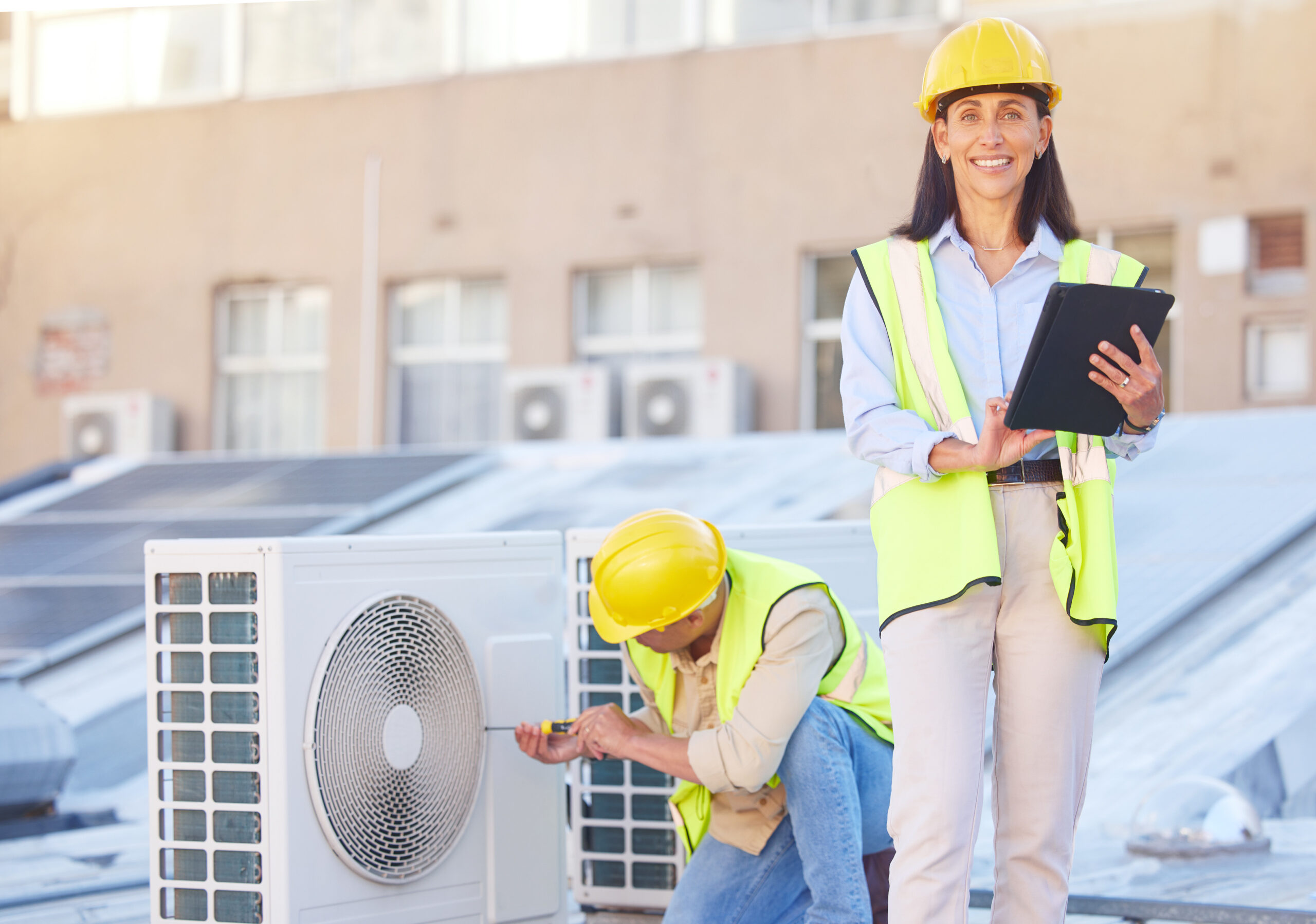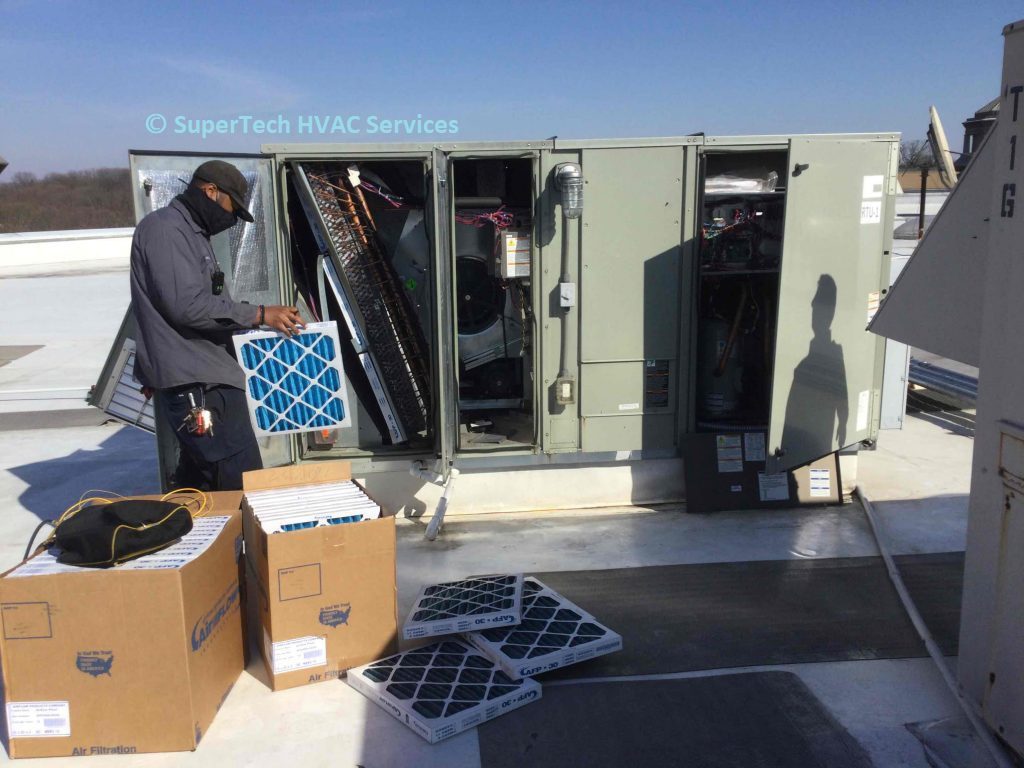Signs Your Home Needs Immediate heat pump service
Signs Your Home Needs Immediate heat pump service
Blog Article
Choosing Between a Heatpump and Heating System: Key Factors To Consider for Your A/c Demands
When assessing home heating choices for HVAC needs, the choice between a heatpump and a heater can be intricate. Each system provides distinctive benefits tailored to details environments and energy effectiveness goals. Comprehending these differences is vital for making an informed selection. Key variables such as installment costs and environmental effect better complicate the selection process. Which alternative absolutely lines up with one's convenience and sustainability preferences? The following sections will discover these considerations thoroughly.
Understanding Heat Pumps: Just How They Function and Their Benefits
While many house owners consider numerous home heating choices, comprehending exactly how heat pumps feature and their benefits can significantly influence their choice. Warm pumps run by transferring warm as opposed to producing it. In the winter, they draw out warmth from the outdoors air or ground and move it inside, while in the summer, they reverse this process, cooling down the home by removing warmth outside. This twin capability makes them flexible for year-round climate control.One of the primary advantages of heat pumps is their energy performance. They make use of considerably less electricity compared to traditional furnace, possibly resulting in reduced utility bills (heat pump installation ooltewah tn). Additionally, warm pumps have a smaller carbon footprint, making them an eco-friendly option. They additionally need less maintenance than traditional systems, adding to long-term price financial savings. Generally, recognizing the mechanics and benefits of warmth pumps can aid property owners make notified decisions concerning their heating and cooling requirements
Exploring Heaters: Kinds, Operation, and Advantages
Furnaces can be found in various kinds, consisting of gas, electrical, and oil designs, each with distinct operational systems. Recognizing these differences is vital, as they impact performance and home heating performance. In addition, furnaces use countless advantages, such as consistent warmth outcome and reliability in cooler climates.
Sorts of Heaters
Furnace can differ substantially in layout and procedure, with heating systems being a prominent selection among house owners. There are several kinds of heaters, each using various gas resources and innovations. Gas furnaces prevail, leveraging all-natural gas to generate warmth successfully. Electric heating systems, on the other hand, make use of electric resistance to create warmth, usually preferred for their simple installation. Oil furnaces, while much less common, are efficient in locations with restricted gas accessibility (furnace replacement). In addition, condensing furnaces take full advantage of power performance by recycling and recording exhaust gases. Each kind runs with a system of warmth exchangers and ductwork to disperse warm air throughout a home. Comprehending the distinctions between these heater types is essential for educated a/c choices
Advantages of Heaters
For property owners seeking dependable warmth during cold months, the advantages of furnaces are considerable. Heating systems offer consistent heating, ensuring also temperatures throughout the home. They are especially efficient in extreme chilly, commonly exceeding warm pumps in cold conditions. Different kinds, consisting of gas, electrical, and oil heating systems, supply adaptability to meet varied demands and preferences.Furnaces likewise tend to have lower preliminary installation costs compared to warmth pumps, making them a more accessible alternative for several. Their durable design adds to a much longer life expectancy, with numerous systems lasting over 15 years with correct maintenance. Furthermore, modern heaters are commonly outfitted with advanced innovation for enhanced efficiency, which can cause lowered power bills. In general, heaters continue to be a reliable selection for reliable home heating.

Power Performance: Comparing Warm Pumps and Furnaces
When comparing power effectiveness in between warm pumps and furnaces, the Seasonal Energy Efficiency Ratio (SEER) plays a crucial duty in identifying performance. Furthermore, a functional price evaluation reveals the lasting monetary effects of each system. Recognizing these elements can direct homeowners in making educated choices concerning their heating remedies.
Seasonal Power Performance Ratio
Energy effectiveness plays a necessary role in the decision-making process in between heatpump and furnaces, specifically when thinking about the Seasonal Energy Performance Ratio (SEER) This metric procedures the cooling effectiveness of heatpump over an entire cooling period, giving a standard method to evaluate performance. Higher SEER scores indicate higher energy effectiveness, translating to reduced energy intake and minimized energy costs. On the other hand, heaters are generally examined making use of the Annual Gas Utilization Effectiveness (AFUE) ranking, which reflects home heating effectiveness. When comparing these two systems, property owners need to focus on SEER ratings for heatpump, as they straight effect total energy financial savings and environmental sustainability. A comprehensive understanding of SEER can especially affect the lasting fulfillment and cost-effectiveness of the chosen heating and cooling service.
Functional Expense Analysis
Understanding the functional prices associated with heatpump and furnaces is important for home owners assessing their alternatives. Heat pumps generally provide higher power efficiency, converting electric energy into heat with minimal waste. This results in lower monthly utility costs, especially in moderate environments. On the other hand, traditional heating systems, especially gas versions, might have lower ahead of time prices however can incur greater functional expenses with time because of sustain costs and effectiveness ratings.Moreover, warmth pumps can work as both home heating and cooling down systems, potentially decreasing the demand for separate cooling and heating systems. While preliminary investments for heatpump might be greater, their long-lasting savings in energy efficiency can make them an extra affordable option for several homes. Careful evaluation of neighborhood energy rates is vital to determine the most effective option.
Setup Costs: What to Expect for each and every Heater
Installment costs for heating unit can vary considerably in between heatpump and heaters, affecting home owners' decisions. Heat pumps furnace replacement generally have higher ahead of time installation prices, usually ranging from $3,500 to $8,000, depending on the system size and intricacy of installation. This consists of the outdoor system, interior handling system, and necessary ductwork alterations. Alternatively, heaters often tend to have reduced initial expenses, balancing in between $2,500 and $6,000, which can be appealing for budget-conscious property owners. Setup expenditures can boost if substantial ductwork is required.Moreover, the selection of fuel kind for heaters-- natural gas, gas, or electric-- can also influence installment prices. While heat pumps offer energy effectiveness, their first investment might prevent some customers. Inevitably, assessing installation expenses alongside lasting financial savings and efficiency will aid property owners in making educated decisions about their home heating systems.
Environment Factors To Consider: Which System Carries Out Better in Your Location
Exactly how do climate problems affect the effectiveness of heating unit? The efficiency of heat pumps and heating systems can vary considerably relying on the regional climate. In moderate climates, heatpump succeed by effectively transferring warmth from the outdoors air, making them an energy-saving choice. Their performance reduces in incredibly cold temperatures, where they may battle to remove enough warm. Conversely, furnaces, particularly gas designs, provide reliable and constant warmth no matter outside conditions, making them preferable in cooler regions.In areas that experience milder winters, heatpump can operate successfully year-round, offering both home heating and cooling. On the other hand, regions with harsh wintertimes typically take advantage of the robustness of heating systems. Ultimately, understanding the neighborhood environment is important when making a decision between a heatpump and a furnace, as it straight influences their operational performance and overall performance.
Maintenance Demands: Long-Term Take Care Of Warmth Pumps vs. Furnaces
While both heatpump and furnaces need normal upkeep to assure peak performance, their particular requirements and treatment regimens vary significantly. Heating systems generally need less constant focus, with yearly examinations being adequate to inspect for gas leaks, clean filters, and evaluate general functionality. Their less complex design often permits uncomplicated repairs.In contrast, heatpump demand biannual maintenance because of their double function in cooling and heating. This consists of cleaning coils, examining refrigerant levels, and guaranteeing that both the outdoor and interior units work at their ideal. In addition, heatpump maintenance frequently entails even more complex components, making specialist servicing essential.Neglecting maintenance can result in diminished efficiency and raised power prices for both systems. Inevitably, homeowners ought to take into consideration these long-term treatment needs when choosing between a heatpump and a heating system, as proactive upkeep can extend the lifespan and performance of either system significantly.
Ecological Effect: Choosing a Lasting Heating Alternative
The environmental influence of furnace is a critical analysis for homeowners seeking sustainable choices. Heat pumps are normally a lot more energy-efficient than traditional heaters, as they move heat instead of generate it, greatly lowering carbon exhausts. By making use of renewable resource resources, such as air-source or geothermal warm pumps, homeowners can further minimize their eco-friendly footprint.On the various other hand, gas heaters send out greenhouse gases and add to air pollution, though they commonly provide greater warmth result. Nevertheless, advancements in innovation have resulted in the growth of high-efficiency heating systems that decrease emissions.Ultimately, selecting a furnace entails considering performance versus environmental influence. Home owners are motivated to show on local energy resources and rewards for eco-friendly systems, ensuring an option that lines up with both personal convenience and environmental obligation. The decision influences not only prompt comfort yet also lasting sustainability and ecological health and web link wellness.
Regularly Asked Questions
How Much Time Do Heat Pumps and Furnaces Generally Last?
The lifespan of heatpump commonly varies from 15 to 20 years, while heaters can last between 15 to three decades. Routine maintenance significantly impacts their longevity and effectiveness in supplying heating solutions.
Can I Use a Heatpump in Very Cold Climates?
Heatpump can operate in exceptionally cool environments, however their efficiency reduces as temperatures decrease. In such problems, additional heating resources might be essential to maintain comfy indoor temperatures and ensure peak performance.

What Is the Sound Level of Heat Pumps Versus Furnaces?
The noise degrees of heatpump and furnaces vary significantly. Normally, heat pumps operate more quietly than traditional heaters, making them more suitable for those conscious seem, while furnaces might produce louder functional sounds during heating cycles.
Are Warm Pumps Suitable for Both Heating and Cooling?
Heatpump are certainly appropriate for both heating & cooling (furnace replacement). They work by transferring warm, giving reliable temperature level control year-round, making them a functional option for homeowners seeking an all-in-one cooling and heating option
What Size Heating System Do I Need for My Home?
Determining the suitable dimension home heating system for a home calls for examining variables such as square video, insulation quality, local environment, and the home's layout. Consulting a specialist can guarantee an accurate assessment and perfect comfort. Heat pumps typically supply higher energy performance, transforming electrical energy into heat with marginal waste. In modest environments, warm pumps stand out by successfully moving warm from the outside air, making them an energy-saving choice. Conversely, heaters, especially gas versions, give regular and trusted warm no matter of outside site here problems, making them better in colder regions.In areas that experience milder winter seasons, warmth pumps can operate effectively year-round, offering both heating and cooling. Heat pumps are normally much more energy-efficient than traditional heating systems, as they move warm instead than generate it, significantly lowering carbon exhausts. By making use of renewable power resources, such as geothermal or air-source heat pumps, home owners can additionally lessen their ecological footprint.On the other hand, all-natural gas heating systems send out greenhouse gases and add to air contamination, though they usually provide higher heat output.
Report this page